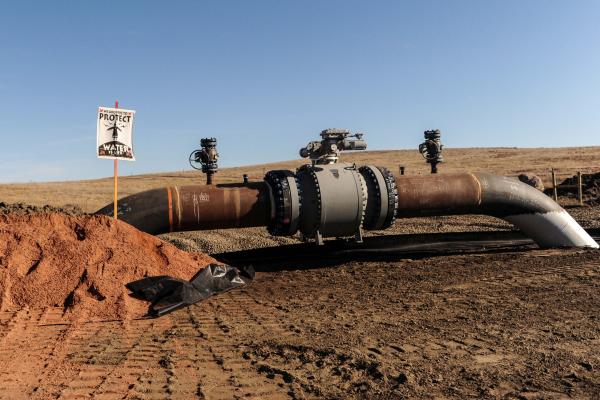On the night of the 2016 presidential election, Jessica Reznicek, a Catholic Worker and water defender, began her “peaceful direct action campaign” against the Dakota Access Pipeline. Along with activist Ruby Montoya, they burned five pieces of heavy machinery in Buena Vista County, Iowa. From there, armed with an oxy-acetylene cutting torch, Reznicek went on to other pipeline construction sites and pierced through the empty steel valves, sabotaged electrical units, and burned other heavy equipment. In a 2017 statement, Reznicek wrote, “We acted for our children and the world that they are inheriting is unfit.”
Following her actions, Reznicek was arrested. She pled guilty to one count of “conspiracy to damage an energy facility,” but in the months following her court date, prosecutors persuaded the judge to add additional charges labeling her a “domestic terrorist.”
Read the Full Article

